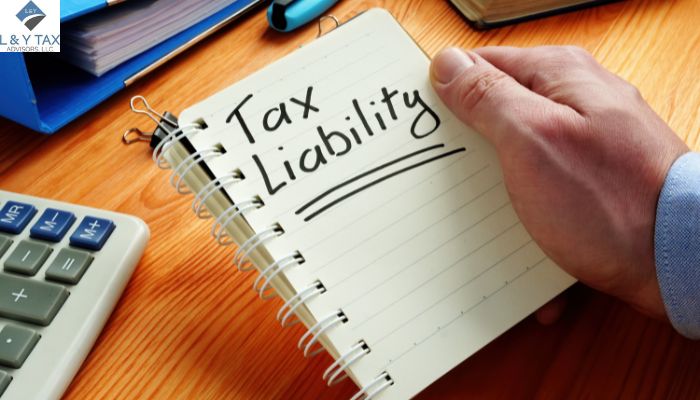
QBI Deduction for Rental Property
Understanding tax deductions is quite difficult for laypersons. Recently, the Qualified Business Income (QBI) deduction has captivated the attention of many businesses. Have you ever realized it is also available to landlords? Let’s dive deep into the QBI deduction for rental property and study its detailed information.
In the Lone Star State of the US, L&Y Tax Consultant explains all about QBI deduction for rental property. These professionals educate you on how it works and how you may use it to minimize your tax bill.
What is the QBI Deduction?
QBI deductions are one of the most discussed components of the Tax Cuts and Jobs Act (TCJA), to which the Internal Revenue Service (IRS) gave some transparency in the final regulations. According to the IRS Notice 2019-07, rental real estate enterprise (RREE) shall be seen as a business or trade under Section 199A. Therefore, it is eligible for the QBI deduction.
An Insight to QBI Deduction for Rental Property
The IRS has clarified whether or not rental property owners are eligible for the QBI deduction. Usually, rental income is seen as passive income. However, you need to satisfy some requirements to qualify for the deduction.

- Rental as a Trade or Business
Your rental operation must be classified as a trade or company in order to qualify for the QBI deduction. It implies that you should be actively involved in the management and upkeep of your rental homes. More than simply having property and earning rent may be required.
- Profitability
Your rental operation should be profitable. Long-term losses may raise red flags with the IRS, potentially barring you from the deduction.
- Record Keeping
Keeping thorough records of your rental activity, costs, and revenue is essential. It is vital for computing your QBI deduction.
- Segregation of Properties
If you own numerous rental properties, consider them as different enterprises for QBI reasons. It implies that you’ll have to compute the deduction for each property separately.
How to Calculate the QBI Deduction for Rentals?
Let’s look at how the QBI deduction for rental property is computed now that we’ve established the eligibility conditions. In most cases, the deduction is 20% of the eligible income.
- Evaluating Qualified Business Income (QBI)
Your QBI is just the net earnings from your rental property business. It is computed by deducting all deductible expenditures associated with your rental activity from your rental income.
- Use the 20% Discount.
You may apply for the 20% discount after you obtain your QBI. It implies that you can deduct a percentage of your rental revenue from your taxable income.
- Limitations and Thresholds
It is critical to understand that the QBI deduction has some specific boundaries and thresholds. These constraints are determined mainly by your taxable income and filing status.
How to Increase QBI Deduction?
Now that you understand the fundamentals of the QBI deduction for rental property consider the following suggestions to help you maximize your deduction:
- Active Participation
Manage your rental properties actively and keep complete records of your activity, which shows the IRS that you are operating a legal trade or business.
- Expense Deductions
Ensure that you claim all available deductions, such as property maintenance, repairs, mortgage interest, property taxes, depreciation, and insurance.
- Consider Your Entity
Depending on the financial structure of your business, you may need to modify some aspects. For instance, if you are a sole owner, your QBI deduction will be included on your tax return. However, if you own many properties, consider incorporating an LLC or similar business.
- Consult a Tax Professional
Tax regulations are complicated and subject to regular or annual amendments. Consulting a tax specialist who specializes in real estate can help you manage the complexities of the QBI deduction and ensure you’re maximizing your advantages while remaining in compliance with tax requirements.
Can I claim Qbi deduction?
Are You Wondering “Can I Claim QBI Deduction?” The Qualified Business Income (QBI) deduction offers eligible businesses tax savings opportunities through qualifying their income as the Qualified Business Income Deduction. Here’s What You Should Know
Eligibility: Sole proprietors, partnerships, S corporations, and certain trusts and estates may qualify.
Income Thresholds: Your total taxable income and type of business could determine eligibility. Deduction Amounts: Up to 20% of qualified business income could potentially be deducted as income tax deduction.
Limitations and Exceptions: Certain service-oriented professions may experience restrictions that limit their success.
Maximizing your QBI deduction requires careful planning and an in-depth knowledge of tax laws, so don’t overlook potential savings! Speak to a tax professional right now so they can ensure you take full advantage of this opportunity to boost tax savings – don’t put off optimizing tax savings; maximize them now!
The Bottom Line
For rental property owners who fulfill the eligibility requirements, the Qualified Business Income (QBI) deduction can be a helpful tax advantage. You could minimize your tax bill and keep more of your rental income by actively managing your rental properties, keeping adequate records, and knowing the deduction’s computations and restrictions.
Please remember that tax regulations are subject to timely changes. Therefore, it is critical to stay informed and speak with a tax professional to ensure you’re making the most out of the QBI deduction for your rental property business. As a result, you may reap the financial rewards and peace of mind that come with proper tax preparation.
In conclusion, L&Y Tax Advisor in Texas, United States, helps you with the QBI deduction for rental property. It is a valuable instrument that may assist property owners in lowering their tax burden. You may maximize this deduction and improve your financial well-being by completing the qualifying standards, actively managing your properties, and getting expert guidance.


